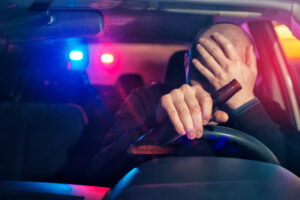In a significant move to combat drunk driving, South Carolina is set to double the number of drivers required to use ignition interlock devices in the coming year. These interlock devices are designed to prevent intoxicated individuals from starting their vehicles by analyzing their breath for a blood-alcohol level below 0.02%.
The expansion of the ignition interlock program comes as a result of updated legislation passed by state lawmakers. Under the new law, anyone convicted of a DUI with a blood alcohol level of 0.08% will now be mandated to have an ignition interlock device installed. Previously, the requirement was limited to those with a blood alcohol level of 0.15% or repeat DUI offenders.
mandated to have an ignition interlock device installed. Previously, the requirement was limited to those with a blood alcohol level of 0.15% or repeat DUI offenders.
Annita Dantzler, the Public Information Officer for the S.C. Department of Probation, Parole, and Pardon Services, anticipates that program enrollment will more than double when these changes take effect in late May 2024. Currently, there are 1,225 drivers in South Carolina with the ignition interlock device installed.
The expansion of the program has received support from individuals like Salatiel Galarza, who tragically lost his brother, Everardo Galarza, to a drunk driver traveling in the wrong direction on Garners Ferry Road. Galarza believes that expanding the ignition interlock program is a positive step, but also advocates for increased education about the dangers of alcohol.
While the ignition interlock program has proven effective in keeping drunk drivers off the road, South Carolina continues to grapple with the issue of DUI-related fatalities. According to a study utilizing National Highway Traffic Safety Administration data, South Carolina had the second-highest rate of DUI fatalities in the nation.
State Senator Brad Hutto, who is also a DUI defense attorney, points to several contributing factors to the prevalence of DUIs in South Carolina. He highlights the lack of public transit options in many areas, the absence of rideshare services like Uber and Lyft in rural regions, and the misconception among some drivers about their level of impairment.
Hutto previously pushed for even stricter measures, such as requiring all drivers arrested but not yet convicted of DUI to enroll in the ignition interlock program. However, this provision was removed from the legislation due to concerns about due process.
Despite facing challenges in pushing for more stringent DUI laws, Hutto remains determined to address the issue. He believes that allowing those arrested for DUI to use an ignition interlock device instead of having their license suspended pending a court date could be a crucial step in reducing DUI-related incidents.
While the road to stricter DUI laws in South Carolina may face obstacles, efforts to combat drunk driving and increase public safety continue to be a top priority for lawmakers and advocates alike.
Editor’s Note: This blog post is a revised version of an article originally published in Carolina News and Reporter on October 2, 2023 written by Camdyn Bruce. While the core content and analysis remain the same, the text has been modified to suit the format and tone of The Bateman Law Firm blog page. Our aim is to present the information in an informative and engaging manner while acknowledging the original source. We appreciate the valuable insights provided by the original article and encourage readers to refer to the newspaper publication for further details.
